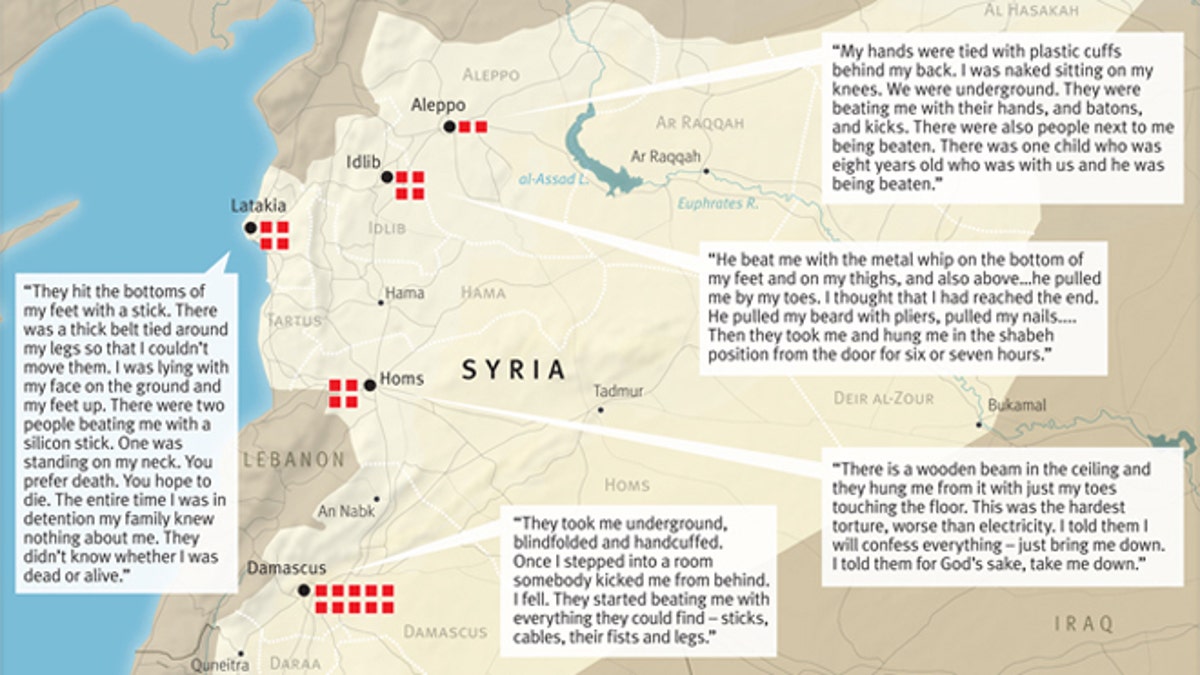
A map of torture centers outlined in the report. (Human Rights Watch)
In an effort to suppress opposition against Syrian President Bashar al-Assad, Syria has been running a network of 27 torture centers, the international Human Rights Watch announced Tuesday in a report.
The report, titled “Torture Archipelago,” is based upon interviews and testimonies from former detainees since March 2011, the group said.
"The intelligence agencies are running an archipelago of torture centers scattered across the country," Ole Solvang, emergencies researcher at the Human Rights Watch, said in a press release.
The report identifies generals running the torture centers, found in cities including Damascus, Idlib, Homs and Aleppo.
Detainees said the Syrian government carried out more than 20 types of torture, which included pulling out fingernails, being burned with acid, electrocution, mock execution, and threats of rape and death directed at family members.
Victims mentioned in the report were primarily males between 18 and 35 years old, but also included women, children and the elderly.
“They forced me to undress. Then they started squeezing my fingers with pliers. They put staples in my fingers, chest and ears,” a 31-year-old victim said. “I was only allowed to take them out if I spoke.”
One form of torture, called “Shabeh,” involved hanging a victim from a ceiling by their wrists.
“After a few days of hanging, being denied sleep, it felt like my brain stopped working,” Elias, a detainee, described in the report. “I was imagining things. My feet got swollen on the third day. I felt pain that I have never felt in my entire life. I screamed that I needed to go to a hospital, but the guards just laughed at me.”
Another victim said after the hanging his hands were “red like blood.”
In another form of torture, called “Dulab,” victims said they were folded at the waist and had their head and legs put inside a car tire. The victims were then subjected to beatings by security forces using batons and whips while they were unable to protect themselves.
The Human Rights Watch is asking the United Nations Security Council to have the International Criminal Court enact sanctions against those behind the abuses. It urged Syria to release all detainees and suspend security force members suspected of human rights violations, pending investigations.
The group also called for Syria to increase access for foreign journalists, human rights organizations, and humanitarian missions, and allow international detention monitors to view the torture facilities.
